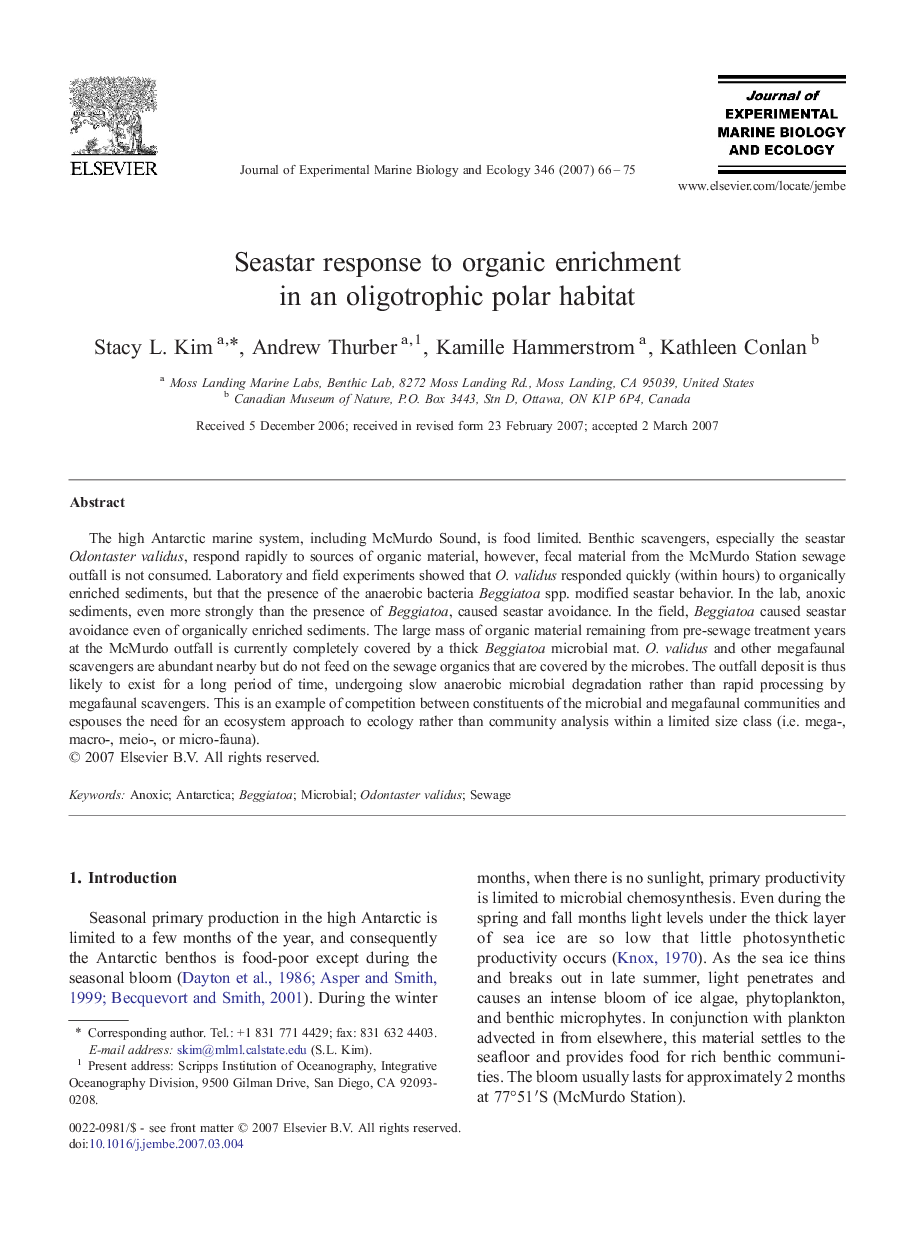| Article ID | Journal | Published Year | Pages | File Type |
|---|---|---|---|---|
| 4397781 | Journal of Experimental Marine Biology and Ecology | 2007 | 10 Pages |
The high Antarctic marine system, including McMurdo Sound, is food limited. Benthic scavengers, especially the seastar Odontaster validus, respond rapidly to sources of organic material, however, fecal material from the McMurdo Station sewage outfall is not consumed. Laboratory and field experiments showed that O. validus responded quickly (within hours) to organically enriched sediments, but that the presence of the anaerobic bacteria Beggiatoa spp. modified seastar behavior. In the lab, anoxic sediments, even more strongly than the presence of Beggiatoa, caused seastar avoidance. In the field, Beggiatoa caused seastar avoidance even of organically enriched sediments. The large mass of organic material remaining from pre-sewage treatment years at the McMurdo outfall is currently completely covered by a thick Beggiatoa microbial mat. O. validus and other megafaunal scavengers are abundant nearby but do not feed on the sewage organics that are covered by the microbes. The outfall deposit is thus likely to exist for a long period of time, undergoing slow anaerobic microbial degradation rather than rapid processing by megafaunal scavengers. This is an example of competition between constituents of the microbial and megafaunal communities and espouses the need for an ecosystem approach to ecology rather than community analysis within a limited size class (i.e. mega-, macro-, meio-, or micro-fauna).
